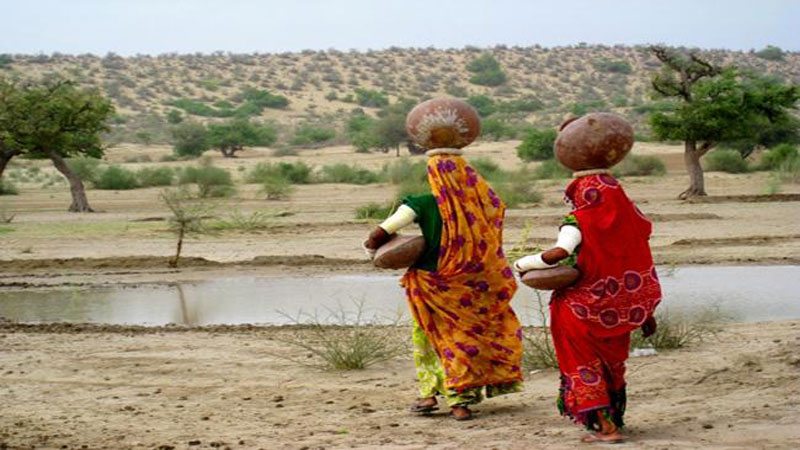Sindh has been facing various problems including poverty, unemployment, corruption and terrorism. The weak and unstable economy of Sindh province requires active participation of educated people in the development. Women make more than half of the total population in Sindh and accessibility of education to them is necessary for economic and social of the Sindh province as well as of the country. But in reality, women in Sindh are in extreme worse condition. They are not involved even allowed to participate in any field of life. In interior Sindh, the role of women is to just sit back at home and live a life of a second-class citizen.
In union council Mohammad Khan Ghoto of district Ghotki, there are not even schools or healthcare centres. The sanitation system is in poor conditions. There are no roads and no access to clean water. .
The overall scenario of the district is in pathetic condition. I want to shed light on District Ghotki that it is an industrial area in Sindh. According to 2017-census, total population of District Ghotki is 1646338. Males are 849226, females are 797051 and transgender people are 41.
Recently, I had a chance to visit this place and seriously it was not a good experience in terms of the facilities provided by the district administration. While talking with the group of people living in this union council they said we are having a government school but from past two to three years no teacher is getting present and even no monitoring visit has been organized by the administration. They claimed that about 800 children are away from education within this respective area. This is the biggest issue, which we are facing because we all are aware that education is our basic human right. Though getting this education our kids can create and develop variety of productive capacities and can earn their livelihood.
In reality, the condition of Sindhi women is pathetic. They are forbidden from participation in any field of life. In interior Sindh, the role of women is to just sit back at home and live a life of a second-class citizen
Another villager said a near medical center is about 40 Kilometers away from our place, and that is the main reason we are facing death trolls. They said we have requested and submitted written applications to the health department but in reply haven’t received any response rather delays and lame excuses. On talking with the female members, I found them strong and committed but they also showed serious concerns regarding job opportunities. They urged the government to chalk out some solutions and provide entrepreneurship programs and provide them small business grants to improve livelihood.
Within the interior side of Sindh poverty has affected the situation of the rural women quite badly. Poor economic situation of women has leaded them to weak social status in the society. Majority of the women are uneducated and unskilled and have no say in the family. The fathers/husbands don’t involve them in decision-making. Domestic violence is quite common due this social, economic and psychological pressure on the poor women. Lack of exposure and information of rural women puts another hard stone in their economic development.
I personally believe that government should provide opportunities and by doing this, it will improve the socio economic status of the rural women. In general if we have a look into the Sindh province as compared to male population female have little access to their basic rights including education. Sindh’s government certainly is focused on providing education to all but female education remains more unsatisfactory in the province. In Sindh, we have to admit that female education has been neglected, which is most prominent in rural areas. According to my research during field visits of various localities of interior Sindh, I found that negative attitudes of fathers, brothers, and husbands towards female education, economic problem, multifarious socio-culture, co-education system, feudalism, family faire about their girls honor, and regional disparities are the major factors of female’s educational deprivation in Sindh. The education system needs emergency reforms from the grassroots level because the copy culture in the province has adapted in the roots.
In urban areas majority of parents are literate, therefore, ratio of school attendants in both genders is higher in urban areas because girls in rural areas frequently are kept at home for domestic work. Besides that nonprofessional teacher’s attitudes and their poor teaching skills cause dissatisfaction amongst students and these factors induce long-term absenteeism and finally dropout of male-female child from schools.
I want to request the government do take immediate steps for providing education and health facilities in rural side of Sindh especially in district Ghotki. By not providing them with these facilities we are discriminating with our daughters, mothers and sisters and we are creating an environment, which is perfect for keeping our coming generations illiterate. By keeping them from schools, we are increasing the risk of violence and conflict in our society. On a serious note government needs not think about it.
The writer is a Lahore-based social and political activist. He has done his Maters and MPhil in Communication Studies. He can be reached at salmanali088@gmail.com, tweets at Salmani_salu
Published in Daily Times, March 1st 2018.

